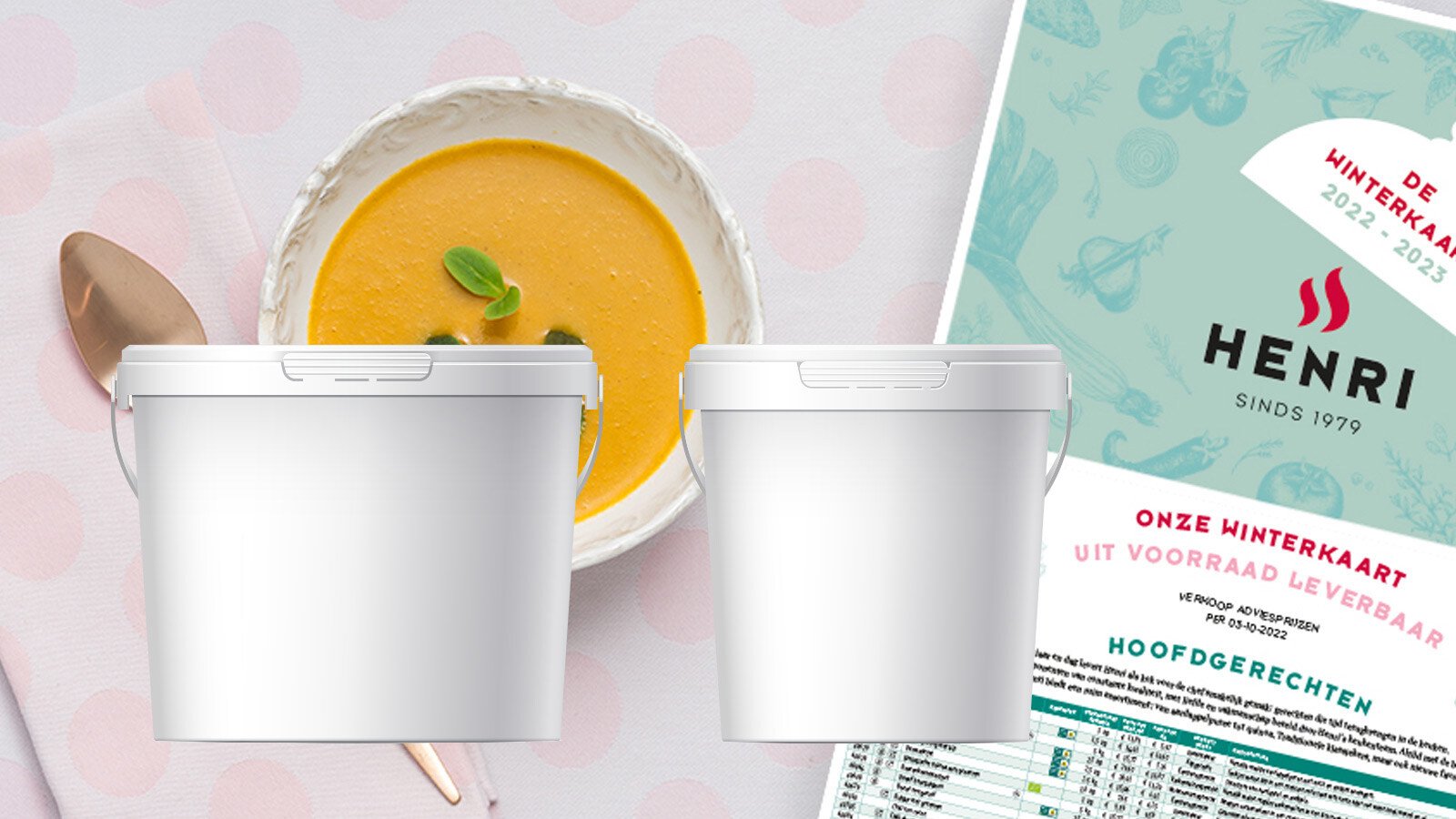In this reference, we show how a great collaboration was established between Henri, Dijkstra Plastics and Milgro around a common waste stream in the food sector.
HDPE/PP-bucket: a convenient product
HDPE/PP buckets are widely used in the food industry, mainly to purchase ingredients in smaller quantities rather than in bulk. HDPE, which stands for high-density polyethylene and PP, polypropylene, have a low surface tension. This keeps food residue and dirt from sticking to the bucket. Useful in the food industry because it also prevents unwanted odor or taste from being left behind. HDPE/PP buckets also seal tightly, preventing liquids from spilling out. At the same time, the lid is still easy to open.

HDPE/PP buckets in the residual waste?
In theory, the buckets could be reused multiple times. However, this happens very little in practice because it requires an industrial dishwasher, a large machine, and loading and unloading is a labor-intensive job. Moreover, HDPE/PP buckets cannot always be reused for food purposes after cleaning. New buckets have a protective coating that can be removed or damaged when washed. This allows microbes to settle in the material of the bucket. This can pose a problem for hygiene requirements.
In general, therefore, buckets often end up in the residual waste. This is a waste of the valuable raw material, as HDPE/PP buckets are easily recyclable. Through recycling and reuse in another sector, the buckets do not have to be disposed of as residual waste, which saves costs and CO2 emissions.

A circular solution at Henri
Milgro connected discarder and receiver, providing a solution for HDPE/PP buckets. The solution was implemented with Henri, producer of soups, sauces and meals, and Dijkstra Plastics. Henri stands for “eating with conscience” and therefore wants to continuously improve when it comes to sustainability. They want to reduce waste in every possible way. They already do this by using vegetables that would otherwise have been thrown away in their soups. So now also in cooperation with Milgro and Dijkstra Plastics through the FIRE-OFF program for HDPE/PP buckets.
The programme
Dijkstra Plastics provides boxes as a collection tool. This is their initiative called FIRE-OFF. The boxes can be sealed airtight, literally sealing off problems with smells and pests. When the box is full, they are collected. The buckets are recycled into new buckets for the non-food market.
Thanks to successful cooperation with several partners, we have created a sustainable solution for the widely used HDPE/PP bucket. Instead of the buckets ending up with the residual waste, Henri's are now being recycled and reused in the non-food market through Dijkstra Plastics' FIRE-OFF initiative.
“Henri stands for EATING WITH a CONSIENCE. That means we want to continuously improve when it comes to sustainability. For example, we want to prevent waste in every possible way. One way we do this is by using residual streams of vegetables, which would otherwise be wasted, but are still delicious for in the soup. But we also look further afield to combat waste. For example, we recently started the Fire-off program in cooperation with Milgro and Dijkstra plastics. The buckets we use in production are collected and recycled as raw material for new buckets for the non-food market. A great initiative, which fits perfectly with Henri's business philosophy.”
Marty Hasenbalg | Manager Operations
Customization
What fits nicely for one company does not automatically fit within all others. An alternative solution is to look at opportunities within procurement. The question is whether materials can be purchased with less or even no packaging. For example, can we purchase in larger quantities, in bulk? Or is there packaging material that can be returned to the supplier? In this way we reduce raw material consumption and waste already closer to the source. Milgro likes to think along with you to find a suitable solution for your company as well.
Stay informed
 Would you like to know more about our approach or discuss the possibilities for your organization in a no-obligation meeting? Then make an appointment now with Alex van Kuilenburg, Business Developer Manager at Milgro.
Would you like to know more about our approach or discuss the possibilities for your organization in a no-obligation meeting? Then make an appointment now with Alex van Kuilenburg, Business Developer Manager at Milgro.











